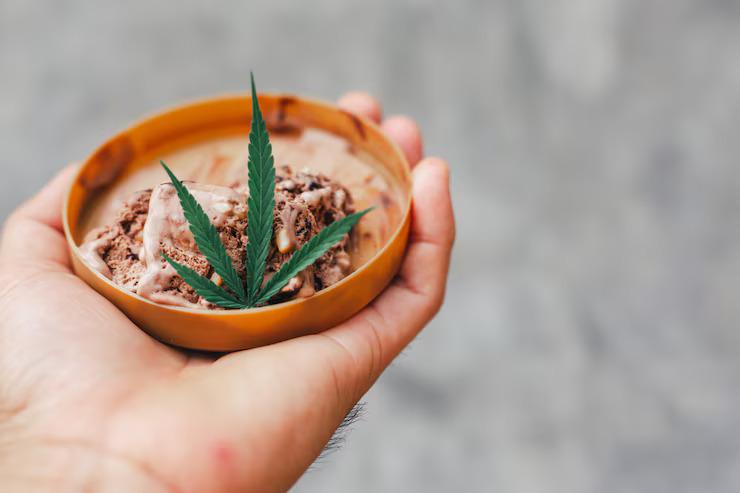Notifications

7 minutes, 47 seconds
-30 Views 0 Comments 0 Likes 0 Reviews

In today’s fast-paced world, quality sleep has become elusive for many. The CDC reports that about one in three adults in the United States do not get enough sleep on a regular basis. From stress and anxiety to chronic pain and insomnia, the reasons behind sleepless nights are varied. In the quest for a solution, many are turning to an unexpected ally: CBD, or cannabidiol. As the natural health movement gains momentum, CBD has emerged as a potential remedy, with thousands swearing by its calming properties. But why exactly are more people reaching for CBD to help them rest, and what does the science say?
CBD is one of over 100 cannabinoids found in the cannabis plant. Unlike its more famous counterpart, THC (tetrahydrocannabinol), CBD is non-psychoactive, meaning it won’t make users feel “high.” Instead, CBD interacts with the body’s endocannabinoid system (ECS)—a complex cell-signaling network that plays a crucial role in regulating mood, sleep, appetite, and pain.
CBD is believed to influence the ECS by indirectly interacting with its receptors, promoting balance (homeostasis) in various physiological functions. When it comes to sleep, CBD may help by reducing factors that commonly interfere with rest, such as anxiety, pain, and inflammation.
Before exploring how CBD supports better rest, it’s helpful to understand the forces undermining sleep quality today:
Chronic stress and anxiety: Constant mental pressure activates the body’s fight-or-flight response, making it difficult to unwind at night.
Technology exposure: Excessive screen time, especially before bed, can interfere with the natural production of melatonin, the sleep hormone.
Physical discomfort and pain: Conditions like arthritis, back pain, and migraines often prevent individuals from finding a comfortable sleeping position.
Sleep disorders: Many people struggle with insomnia, restless leg syndrome, or sleep apnea, further complicating their ability to fall or stay asleep.
Given these challenges, natural remedies like CBD are increasingly becoming part of people’s nighttime routines.
One of the key reasons behind CBD’s rising popularity is its potential to promote restful sleep without the drawbacks of conventional medications.
Several studies show CBD may help reduce anxiety levels, a major contributor to sleep disturbances. In a 2019 study published in The Permanente Journal, nearly 80% of participants reported decreased anxiety within the first month of CBD use. More than two-thirds also experienced improved sleep scores, indicating a strong connection between reduced anxiety and better rest.
CBD is well-known for its analgesic and anti-inflammatory properties. For individuals suffering from chronic pain, CBD can help soothe discomfort that might otherwise make it difficult to fall asleep. This effect is especially beneficial for those with conditions like fibromyalgia or arthritis.
Emerging research also suggests CBD may have a balancing effect on the sleep-wake cycle. While high doses may encourage drowsiness, lower doses may promote alertness, allowing CBD to support the body’s natural rhythms depending on the need.
This growing body of evidence explains why more people are now using CBD for better sleep. Rather than acting as a sedative, CBD appears to address the root causes of sleep disturbance—making it a gentler, more holistic approach compared to traditional sleep aids.
CBD comes in a variety of forms, allowing users to tailor their experience to personal preferences and needs. Here are some popular delivery methods:
CBD oils and tinctures: Placed under the tongue, these absorb quickly and are easy to dose.
CBD capsules and softgels: These offer consistent dosing and are ideal for long-term use.
CBD gummies and edibles: Convenient, tasty, and discreet.
Topical CBD products: Ideal for targeting localized pain that might interfere with sleep.
CBD-infused teas and beverages: Combine the benefits of herbal relaxation with CBD’s calming properties.
Many users start with a low dose and gradually increase it until they find the amount that helps them relax and sleep more deeply. Timing is also key—taking CBD 30 to 60 minutes before bedtime is often recommended.
Not all CBD products are created equal. To ensure safety and effectiveness, keep the following tips in mind:
Look for third-party lab testing: Reputable brands publish lab results verifying purity, potency, and the absence of contaminants.
Choose full-spectrum or broad-spectrum options: These include additional cannabinoids and terpenes that may enhance CBD’s effects through the entourage effect.
Buy from reputable sources: Look for transparent labeling, clear dosage information, and organic or U.S.-grown hemp.
CBD is generally well-tolerated, but some users may experience side effects such as:
Dry mouth
Drowsiness
Appetite changes
Gastrointestinal discomfort (usually at higher doses)
It's also important to consult with a healthcare provider before incorporating CBD into your routine, especially if you're taking medications that may interact with it, such as blood thinners or sedatives.
As sleep challenges continue to affect millions, CBD has emerged as a promising, natural option for those seeking rest without the side effects or dependency risks associated with pharmaceutical sleep aids. While more research is still needed to fully understand all of CBD’s mechanisms and long-term effects, current studies and anecdotal reports suggest that it holds real promise in helping people reclaim restful nights. Whether you're dealing with stress, pain, or general insomnia, CBD may offer a gentle and effective path toward better sleep and improved overall well-being.

